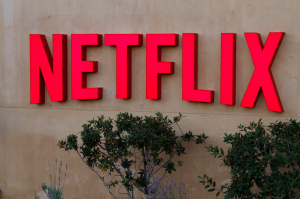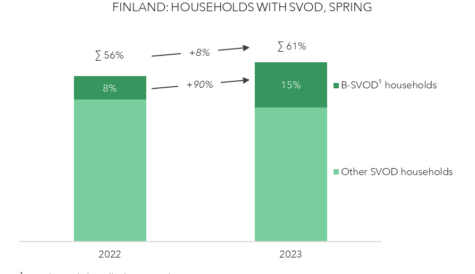
After more than 40 years of operation, DTVE is closing its doors and our website will no longer be updated daily. Thank you for all of your support.
Netflix ‘not sustainable’ with ‘out-of-control spend’, says Ovum
 Research house Ovum has claimed Netflix’s current business model is unsustainable and its spending on content is out of control.
Research house Ovum has claimed Netflix’s current business model is unsustainable and its spending on content is out of control.
Ovum, which like DTVE and its sister title TBI is part of UK-listed Informa, said that the US-based SVOD company is accounting for its content spending in a manner that flatters its weakening profitability.
In a highly critical report on the streaming company, Ovum’s Angel Dobardziev said: “Netflix’s current business model burns massive and increasing amounts of cash, which we think is not sustainable.”
Netflix said last month it was raising an additional US$1 billion to spend on content, as its annual content spend heads for US$6 billion.
Original programming such as Narcos, House of Cards, Orange is the New Black and Stranger Things have all driven US and international subscriber growth, and Netflix is now looking for an even split of in-house and acquired fare.
Ovum took issue with Netflix over how it accounts for its content spend, claiming it had “adopted a host of very aggressive content accounting assumptions that seek to paper over the deteriorating business economics and flatter its weakening profitability, both of which are the result of its spending beyond its means”.
The research firm added that Netflix acknowledges too small an amount of its programming expenses in the short term. “It recognises too small a proportion of these expenses right now, pushes more of these expenses into the future, and as a result flatters its earnings,” the report claimed.
Netflix reported better than expected results in October, with revenues topping US$2 billion, and subscriber growth exceeding expectations, prompting another surge in the value of its shares, which have rocketed in recent years.
Ovum said, however, that the current rate of customer growth cannot be sustained. “We think Netflix will find it near impossible to maintain its subscriber growth while at the same time keeping tight control of the costs that are driving its cash burn,” Dobardziev noted.
Addressing the fact that investors have overwhelmingly backed Netflix, as reflected in its share price, Ovum noted Netflix trades at over 300 times earnings compared with the industry average of 25 times.
“The exuberance surrounding Netflix has parallels with the dot.com boom, when tech companies with lots of users – ‘eyeballs’ – and no profits were reaching stratospheric valuations,” Dobardziev said.
Netflix and other streaming services are undeniably having an impact on the traditional pay TV platforms in the US, with research issued this month suggesting the biggest ever drop in subscriber numbers across the first nine months of the year.
Other reports pointed to the number of SVOD homes in the US will soon top the number of traditional TV households.
Ovum concludes, however, that Netflix is caught between a rock and a hard place in this rapidly changing landscape.
“It has to spend vastly increasing amounts of cash on producing original content amid a very competitive content production and licensing market, but is unable to raise prices sufficiently to make meaningful profits due to intensifying competition,” he said.
Netflix did not respond to requests for a response, but the streaming service does have friends in other places.
Dror Ginzberg, founder and CEO of video platform Wochit, released a statement to tie in with today’s launch of the rebooted Gilmore Girls that praised the content strategy.
Ginzberg cited research that suggests Stranger Things was watched by 14 million in its first month of release and season four of Orange is the New Black by 6.7 million, saying this was “one of the biggest reasons as to why it is far more popular than its competitors”.
“Now with Gilmore Girls returning for a new season with Netflix, under the direction of the original showrunners, the online streaming service is set to continue its ground-breaking trend for delivering the high quality, on-demand content,” Ginzberg added.
“It clearly recognises that this is where global audiences are going as online video now accounts for over two-thirds of all internet traffic, and is expected to jump to an unprecedented 82% by 2020.”


